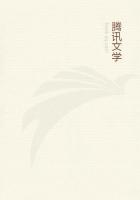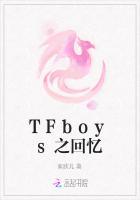Food-Superstitions.--The superstitious abhorrence and antipathy to various articles of food that have been prevalent from time to time in the history of the human race are of considerable interest and well deserve some mention here. A writer in a prominent journal has studied this subject with the following result:--"From the days of Adam and Eve to the present time there has been not only forbidden fruit, but forbidden meats and vegetables. For one reason or another people have resolutely refused to eat any and all kinds of flesh, fish, fowl, fruits, and plants. Thus, the apple, the pear, the strawberry, the quince, the bean, the onion, the leek, the asparagus, the woodpecker, the pigeon, the goose, the deer, the bear, the turtle, and the eel--these, to name only a few eatables, have been avoided as if unwholesome or positively injurious to health and digestion.
"As we all know, the Jews have long had an hereditary antipathy to pork. On the other hand, swine's flesh was highly esteemed by the ancient Greeks and Romans. This fact is revealed by the many references to pig as a dainty bit of food. At the great festival held annually in honor of Demeter, roast pig was the piece de resistance in the bill of fare, because the pig was the sacred animal of Demeter. Aristophanes in 'The Frogs' makes one of the characters hint that some of the others 'smell of roast pig.'
These people undoubtedly had been at the festival (known as the Thesmophoria) and had eaten freely of roast pig, Those who took part in another Greek mystery or festival (known as the Eleusinia) abstained from certain food, and above all from beans.
"Again, as we all know, mice are esteemed in China and in some parts of India. But the ancient Egyptians, Greeks, and Jews abhorred mice and would not touch mouse-meat. Rats and field-mice were sacred in Old Egypt, and were not to be eaten on this account. So, too, in some parts of Greece, the mouse was the sacred animal of Apollo, and mice were fed in his temples. The chosen people were forbidden to eat 'the weasel, and the mouse, and the tortoise after his kind.' These came under the designation of unclean animals, which were to be avoided.
"But people have abstained from eating kinds of flesh which could not be called unclean. For example, the people of Thebes, as Herodotus tells us, abstained from sheep. Then, the ancients used to abstain from certain vegetables. In his 'Roman Questions'
Plutarch asks: 'Why do the Latins abstain strictly from the flesh of the woodpecker?' In order to answer Plutarch's question correctly it is necessary to have some idea of the peculiar custom and belief called 'totemism.' There is a stage of society in which people claim descent from and kinship with beasts, birds, vegetables, and other objects. This object, which is a 'totem,' or family mark, they religiously abstain from eating.
The members of the tribe are divided into clans or stocks, each of which takes the name of some animal, plant, or object, as the bear, the buffalo, the woodpecker, the asparagus, and so forth.
No member of the bear family would dare to eat bear-meat, but he has no objection to eating buffalo steak. Even the marriage law is based on this belief, and no man whose family name is Wolf may marry a woman whose family name is also Wolf.
"In a general way it may be said that almost all our food prohibitions spring from the extraordinary custom generally called totemism. Mr. Swan, who was missionary for many years in the Congo Free State, thus describes the custom: 'If I were to ask the Yeke people why they do not eat zebra flesh, they would reply, 'Chijila,' i.e., 'It is a thing to which we have an antipathy;' or better, 'It is one of the things which our fathers taught us not to eat.' So it seems the word 'Bashilang' means 'the people who have an antipathy to the leopard;' the 'Bashilamba,' 'those who have an antipathy to the dog,' and the 'Bashilanzefu,' 'those who have an antipathy to the elephant.' In other words, the members of these stocks refuse to eat their totems, the zebra, the leopard, or the elephant, from which they take their names.
"The survival of antipathy to certain foods was found among people as highly civilized as the Egyptians, the Greeks, and the Romans. Quite a list of animals whose flesh was forbidden might be drawn up. For example, in Old Egypt the sheep could not be eaten in Thebes, nor the goat in Mendes, nor the cat in Bubastis, nor the crocodile at Ombos, nor the rat, which was sacred to Ra, the sun-god. However, the people of one place had no scruples about eating the forbidden food of another place. And this often led to religious disputes.
"Among the vegetables avoided as food by the Egyptians may be mentioned the onion, the garlic, and the leek. Lucian says that the inhabitants of Pelusium adored the onion. According to Pliny the Egyptians relished the leek and the onion. Juvenal exclaims:
'Surely a very religious nation, and a blessed place, where every garden is overrun with gods!' The survivals of totemism among the ancient Greeks are very interesting. Families named after animals and plants were not uncommon. One Athenian gens, the Ioxidae, had for its ancestral plant the asparagus. One Roman gens, the Piceni, took a woodpecker for its totem, and every member of this family refused, of course, to eat the flesh of the woodpecker. In the same way as the nations of the Congo Free State, the Latins had an antipathy to certain kinds of food. However, an animal or plant forbidden in one place was eaten without any compunction in another place. 'These local rites in Roman times,' says Mr. Lang, 'caused civil brawls, for the customs of one town naturally seemed blasphemous to neighbors with a different sacred animal.















